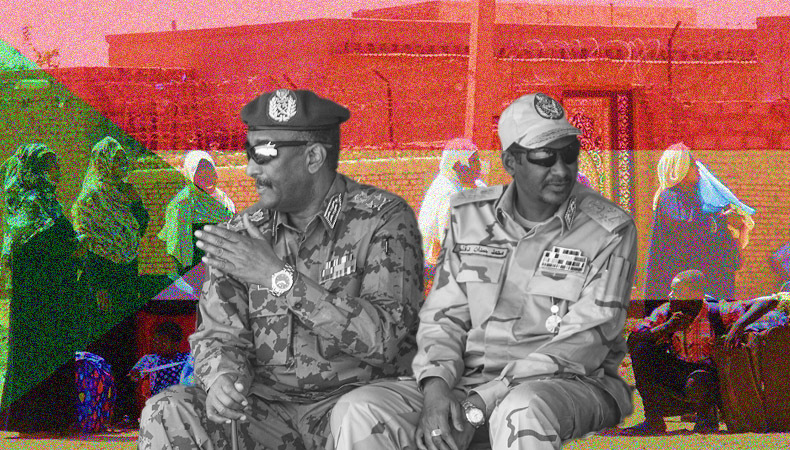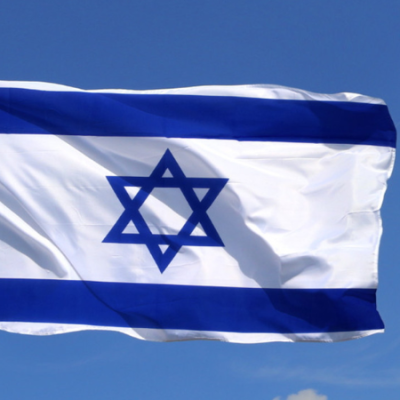Things could go south in Sudan violence – the two possible scenarios that might unfold

The ongoing fighting that erupted between Sudan’s warring parties one month ago surprised few.
But what has shocked many is the scale and intensity of the conflict engulfing Africa’s third-largest country, a war that has killed almost 1,000 people and compelled many more to abandon their houses and cross the border into neighbouring Chad and South Sudan.
Also Read – Sudan crisis: Residence of the head of Kuwait’s military office in Khartoum attacked
And it appears things could take a much worse route soon.
As discussions yield no noteworthy results, former government officials of Sudan and Western experts have taken to the drawing board to imagine what possible path the violence could further take and how bad it is likely to become.
Speaking on the condition of anonymity, a senior European diplomat stressed none of the possible scenarios end well.
The immediate challenge is the two parties in war – Sudan’s military, led by General Abdel Fattah al-Burhan, and the powerful paramilitary Rapid Support Forces, led by General Mohamed Hamdan Dagalo – still believe a military victory is possible, irrespective of the consequences.
But the greater danger is the raging conflict worsening into a full-blown civil war that not only breaks Sudan into numerous pieces, but also lures foreign powers looking to support a winner.
Sudan is a coveted geopolitical prize in a volatile region. It has over 6,750 km of land borders with seven other countries, with a majority of them already struggling with conflict or drought.
Although considered poor by global standards, Sudan has rich reserves of oil, water and gold, and overlooks one of the busiest shipping lanes in the world on the Red Sea.
With an increasing possibility of things going south, read on for a couple of key routes the conflict in Sudan could take in the near future – as reported by American newspaper New York Times.
1) A Return To Authoritarian Rule On Military’s Victory
Until now, the two warring factions have seemed evenly matched on military terms. The regular army possibly has twice as many troops, in addition to tanks, fighter jets and helicopter gunships. But the RSF is a more battle-tested group that can move quickly.
The battleground centres in the capital, Khartoum. If the military gets the upper hand in the city, it would most likely be supported by residents furious over the plunder and abuses of the paramilitary force, whose fighters hold control of much of the city centre.
But an easy victory doesn’t appear to be in sight. To make the RSF hold the shorter end of the stick, the regular army would possibly intensify the airstrikes, leaving the winner with a devastated capital. And it might need additional help from other interested nations in the region.
But to win convincingly, the military might need to either kill or capture General Hamdan and his powerful brother, Abdul Rahim Dagalo. Otherwise, an injured RSF could return to its stronghold in Darfur and trigger a new insurgency from there.
While both parties claim to want Sudan to have a democratic future, a victorious military might bring back the authoritarian-style rule and facilitate a return of the Islamists.
2) A Political Earthquake On RSF’s Victory
Meanwhile, even if General Hamdan gets the longer end of the stick, the RSF would struggle to gain widespread support.
Once a commander of the feared Janjaweed militias, the general has in recent years tried to give his image a fresh makeover – one of a champion of the dispossessed – ethnic groups from outlying regions that have long been discriminated by what he calls a Khartoum-based elite.
But a victory in the ongoing conflict would not make things anyway easier for the group. Wartime abuses by RSF fighters, including rape, have worsened existing hostility toward the paramilitary force in the capital and northern Sudan.
Moreover, a number of analysts believe residual military units, unwilling to accept General Hamdan as the leader, would likely fight on.
An RSF victory could also make certain neighbouring countries more involved in the conflict. Egyptian President Abdel Fattah el-Sisi views RSF as unacceptable rulers of Sudan.
To the west, although Chad has adopted a more neutral official stance, an American official speaking anonymously stressed Chad’s leaders also distrust the general and have privately expressed their willingness to intervene in the fight on the side of the military if necessary.
Things might even get worse if an Egyptian intervention in Sudan lures in Ethiopia, its regional rival.
Also Read – Sudanese nationals airlifted by Yemeni government
An RSF victory could be good news for Russia, which seems to have cozied up to General Hamdan, hoping to gain naval access for its warships to Port Sudan, on the Red Sea.
Furthermore, things could also get easier for Wagner, the Kremlin-based private military company, that makes use of Sudanese territory to cross into the Central African Republic and even mines for gold in Sudan.



